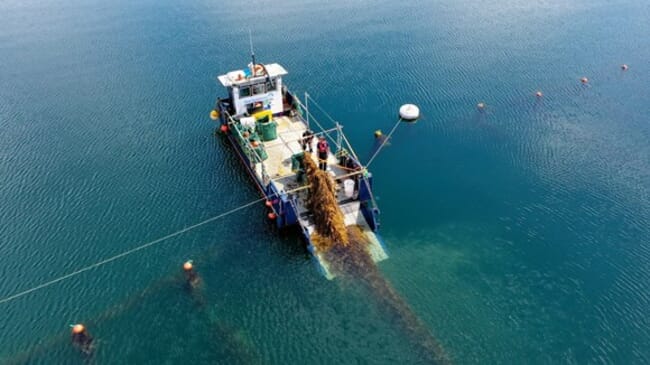
© SAMS
Biome Algae - a seaweed producer based in Devon and Cornwall - along with Camel Fish - a seafood supplier - have submitted planning applications for 2 fifty hectare sustainable regenerative seaweed farms, to be developed within the Port Quin Bay area of North Cornwall.
The plans, however, face growing local opposition, as inhabitants of the area cite worries of disturbance to marine wildlife, and minimal benefits for local communities.
“The area is frequented by lots of sea mammals. We've had whales and dolphins all visiting the area which all swim and feed where they're proposing to farm,” said Port Quin local Rory Colborne, as reported by Pirate FM, an online news platform.
“I think it's really important there are natural spaces within Cornwall that are left untouched. There have been huge amounts of development in other areas which have their own benefits and negatives. But it's important we have areas like this, an amazing viewing gallery for those animals, as an area where visitors can come to explore and see nature,” he added.
“At first I thought brilliant, it's going to be carbon capture, but then we looked into it and it doesn't seem like that's going to be the case at the moment. It seems like it's going to be the monetisation of a beautiful bay,” commented Sky Yolland, another Port Quin inhabitant.
Lead by Dr Angela Mead, an experienced marine biologist and seaweed farmer, Biome Algae insist that they followed the planning procedures laid out by the Marine Management Organisation (MMO), and that the plans were advertised in local media during a twenty-eight day public consultation period. The seaweed producer states that, as no issues were raised during this period, they understood there to be no community opposition to the plans.
Both Biome and Camel Fish emphasised that, when running at full capacity, the farms will occupy only 10 percent of the area outlined in the plans, and so will have minimal negative impact on local marine life, such as cetaceans.
Additionally, the companies intend to cultivate only local species of seaweed, and have previous research showing that their farms enhance marine biodiversity, restore coastal habitats, and provide ecosystem services.
Following the initial public consultation, the MMO has since stated that the public notice of the consultation period was insufficient, and has reopened a second period of response.




